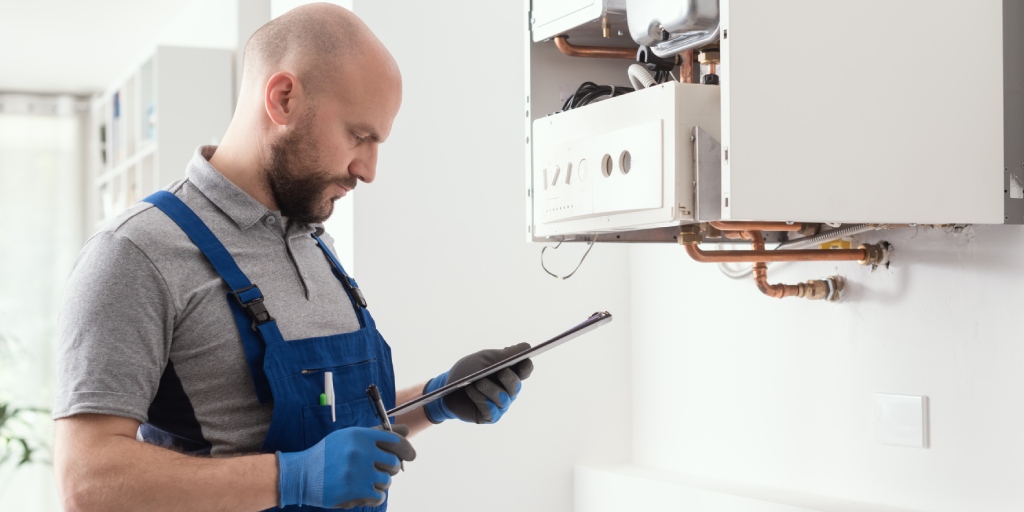You, being a landlord in the UK, are under a legal obligation to ensure that your tenants are safe — and one of your key obligations is that of conducting gas safety inspections. These are not discretionary. They are essential to prevent major risks like gas leaks, fires, and carbon monoxide poisoning.
If you rent out a property that contains gas appliances, these are the things you should know to stay compliant and keep your tenants safe.
What Is a Gas Safety Check?
A gas safety check is a safety inspection carried out by a Gas Safe registered engineer. It’s a thorough check of the property’s gas appliances, pipework, flues and chimneys to verify they’re functioning as they should and are safe to use.
The engineer will check for:
- Gas leaks or unsafe pipework
- Faulty boilers, hobs, or gas fires
- Poor or blocked ventilation
- Dangerous flues or chimneys
- Carbon monoxide risks
Once the inspection is complete, you’ll be issued a Gas Safety Certificate, also known as a CP12.
Is It a Legal Requirement?
Yes. Under the Gas Safety (Installation and Use) Regulations 1998, landlords must:
Arrange an annual gas safety check for any gas appliances or pipework provided in the rental
- Use a Gas Safe registered engineer
- Give tenants a copy of the certificate:
- Within 28 days of the check (for existing tenants)
- At the time of move-in for new tenants
- Keep a copy of every certificate for at least two years\
Not doing so can lead to fines, prosecution, or worse if there is an incident.
Who Does This Apply To?
These apply to anyone renting out a property with gas. That is:
- Private landlords
- Housing associations
- Local authorities
- Letting agents on behalf of landlords
- Holiday let owners (if let out for more than 28 days per annum)
- Student accommodation providers
Even if the property has only one gas appliance — for example, a hob or gas fire — a full safety check has to be conducted.
What Does the Certificate Include?
Your CP12 will detail:
The address of the property
Equipment and pipework inspected
Result of safety tests
Faults and recommended maintenanc
Confirmation that appliances are safe by present-day standards
The engineer’s name, Gas Safe number and signature
If everything passes, you’re covered for the next 12 months. If not, the engineer will advise on next steps and may shut down unsafe equipment.
Common Problems Found During Checks
Some of the most common issues engineers come across include:
- Blocked chimneys or flues
- Gas fires that need repair or replacement
- Boilers that haven’t been serviced
- Leaking or corroded pipework
- Poor ventilation around appliances
Most of these can be resolved at short notice if caught early — that is why the annual check is vital.
Fire Safety and Emergency Exits
If you have window bars or grilles on ground-floor windows, make sure they don’t block the way out in the event of a fire. Any window intended for escape purposes should be provided with quick-release. The safety of gas is part of a general duty to keep the house secure in the event of emergencies.
How to Stay Compliant
Book early – Don’t leave it to the last minute. Give time to resolve any issues before the current certificate runs out.
Use qualified engineers – Always check their Gas Safe ID and registration.
Keeping records – Maintain electronic or paper copies of all CP12s for a minimum of two years.
Move fast on repairs – If there is a mistake, book repair and recheck straight away.
Inform your tenants – Tell them how to use appliances safely and what signs to look out for (e.g. yellow flames, sooty marks, heavy condensation).
What’s the Penalty for Not Being Compliant?
Local authorities can take action against landlords who fail to carry out gas safety checks. This may include:
- Penalties
- Improvement notices
- Criminal prosecution
- Loss of insurance cover
- Hassle serving a Section 21 notice if there is no up-to-date CP12 in place
In extreme cases, landlords could even end up in jail.
Last Word
Gas safety checks aren’t a choice for being a landlord. They’re done to save lives, avoid costly damage, and keep your property legally stable.
If you cannot remember when your last check was carried out, or you have lost your current certificate, it’s time to take action. Booking a Gas Safe engineer to carry out a CP12 check is quick, inexpensive, and gives you peace of mind that your tenants — and your property — are safe. Contact us for more information on Gas safety checks for rental properties.










